Contents
Guide
ARCTIC HOMESTEAD


| ARCTIC
HOMESTEAD THE TRUE STORY OF ONE FAMILYS
SURVIVAL AND COURAGE IN THE
ALASKAN WILDS Norma Cobb
AND Charles W. Sasser 
St. Martins Griffin  New York New York
|
ARCTIC HOMESTEAD: THE TRUE STORY OF ONE FAMILYS SURVIVAL AND COURAGE IN THE ALASKAN WILDS. Copyright 2000 by Norma Cobb and Charles Sasser. All rights reserved. No part of this book may be used or reproduced in any manner whatsoever without written permission except in the case of brief quotations embodied in critical articles or reviews. For information, address St. Martins Press, 175 Fifth Avenue, New York, N.Y. 10010.
www.stmartins.com
Our eBooks may be purchased in bulk for promotional, educational, or business use. Please contact the Macmillan Corporate and Premium Sales Department at 1-800-221-7945, extension. 5442, or by e-mail at .
Library of Congress Cataloging-in-Publication Data
Cobb, Norma.
Arctic homestead : the true story of one familys survival and courage in the Alaskan wilds / Norma Cobb and Charles W. Sasser.1st ed.
p. cm.
eISBN 978-1-4299-7220-8
ISBN 0-312-26198-5 (hc)
ISBN 0-312-28379-2 (pbk)
1. Frontier and pioneer lifeAlaskaMinook Creek Valley. 2. Minook Creek Valley (Alaska)Biography. 3. Minook Creek Valley (Alaska)Social life and customs. 4. Cobb family. 1. Sasser, Charles W. II. Title.
F912.M55 C64 2000
979.87dc21
00-031733
In this book I have endeavored to render the truth as accurately and vividly as possible. This is my story, but it is also the story of my family and others who played major or minor roles in the events narrated.
Dialogue and events are reported to the best of my recollection. While the content is accurate, naturally I cannot be certain every quote is entirely accurate word for word or that my interpretation of events will be exactly the same as someone elses. Much time has passed since many of these events occurred.
In some instances, events have been condensed, compressed, or rearranged as necessary for brevity and clarity. Life is so full that to give a complete accounting of it in sequence would require a book much longer than this one and would render it unreadable.
Many of the names in this book have been changed.
N ORMA C OBB
Colorado rancher and friend Scotty Anderson introduced me to Norma and Lester Cobb at the Lost Creek Ranch in Minook Valley in the spring of 1998 during one of my frequent forays to Alaska to hunt, fish, climb mountains, and hike the wonderful bush country. Alaska remains one of the few places left on earth where there are almost no fences and wildlife outnumbers humans. Les is today a big-game hunting guide, a tall, brash, leather-tough man of whom it is said that if you have a choice between fighting an enraged grizzly or taking him on, you might be safer choosing the bear. Norma is a sensitive, spiritual woman whose observations about the raw Alaskan wilderness express her love for and appreciation of it. She handles the business end of the operation while also serving as hostess, camp cook, and wrangler.
Even today, their nearest neighbor, a fair weather neighbor at that, is eleven miles away down a muddy road Les maintains himself. From the nearest settlement at Eureka, an old gold mining camp that is now all but a ghost town, the road punches through willows and alder brush, cuts across high tundra, curves around spectacular mountain peaks, tops Dead Horse Pass, then drops abruptly into a lost valley so stunning it takes away your breath. Minook Valley is one hundred and fifty miles northwest of Fairbanks, south of the Arctic Circle, and four directions from literally nowhere.
The valley is wide and green with fir, spruce, birch, cottonwood, larch, and willow. Snowcapped peaks surround and protect it from the fierce winds of winter. It is dissected by a pair of fast, clear-running streams. Lost Creek rushes into Minook Creek, from which the valley acquired its name, and Minook tumbles merrily toward the Yukon River nineteen miles away.
If we hadnt found this valley, nothing could have induced me to stay in Alaska, Norma contends today. But it stole my heart the moment we came to the top of the pass and I saw it for the first time.
In spite of its isolation, indeed because of it, Minook Valley carries a rich history. Early Athabascan tribes used it as a route to reach the Yukon and its salmon harvests. In the late 1800s, gold rush pioneers walked the Minook Trail between diggings at Rampart on the Yukon and Eureka farther south. Jack London penned some of his famous Alaskan short stories while weak from scurvy only a short distance from the Cobb homestead. Wyatt Earp and his wife, Josie, were stranded at Rampart over a winter when their steamboat froze up on the river. Tex Rickard ran a saloon along the Minook Trail before becoming Americas leading boxing promoter and building Madison Square Garden. Iditarod winners Susan Butcher and Rick Swenson live and train in the area around Eureka.
Lost Creek Ranch is the only occupied homestead remaining in the valley. The log cabin is squat, solid, and massive, built to endure far into a new millennium. It melds naturally into the terrain, at peace with the timber and mountains and tundra, a symbol of the indomitable human spirit and the pioneer creed. Although still rough and primitive, it now includes comforts only recently acquired and which are taken for granted by most Americans.
Electricity, for example, is supplied by an oil-fueled generator. The indoor plumbing uses water pumped directly from Lost Creekanother true luxury. Les climbed a seven-thousand-foot peak, Norkys Mountain, to erect an antenna for relaying telephone signals, providing telephone access to the outside world for the first time.
Norma, now in her fifties, is a dark-haired, attractive woman only slightly over five feet in height. Spiritwise, characterwise, she is every inch the stature of her burly six-two husband. She was the last woman in America to sign up under the U.S. Homestead Act of 1862 to become a homesteader. Mrs. Cobb is a true pioneer.
Les Cobb is a rough-talking, easy-laughing man more at home on a game trail than on a city street. Together, twenty-six years ago, dragging along with them their five small children, they set out from the lower United States in quest of an American dream that had all but died after the opening of the American Westthe opportunity to have free land if they would but settle on it and build a home.
I have sat many evenings with the Cobbs around the warm cradle of the woodstove in their cabin and listened to tales of when this valley was really virgin and they first hiked into it from trails end. That was when it was occupied solely by moose, black bear, grizzly, wolverines, and, along the Yukon, a few Indians and Eskimos who spoke in hushed tones of a Bushman, a huge, hairy manlike creature who stole children.
Their odyssey began in the autumn of 1972. Newly married with five small children between them from previous relationships, they were barely eking out an existence in the Lower Forty-eight. They realized the only way they could ever afford to own a farm of their own was to take the trail of pilgrims and pioneers before them and set out to find Americas last frontier.


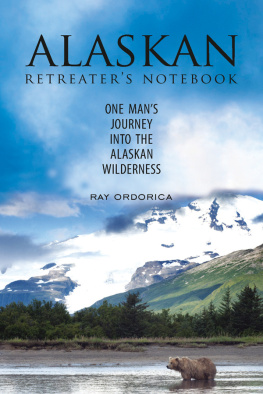
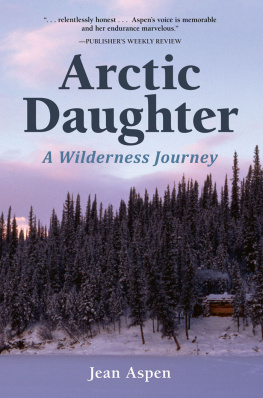
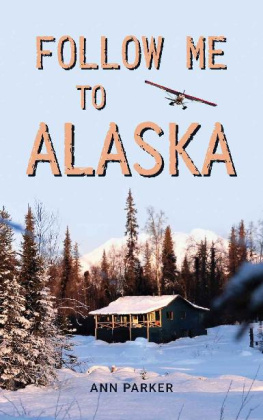
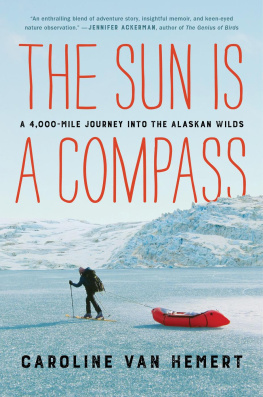

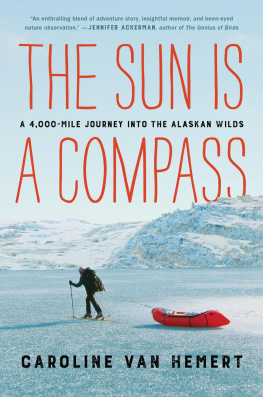
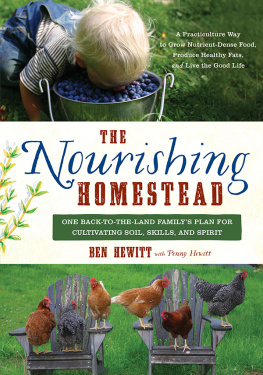

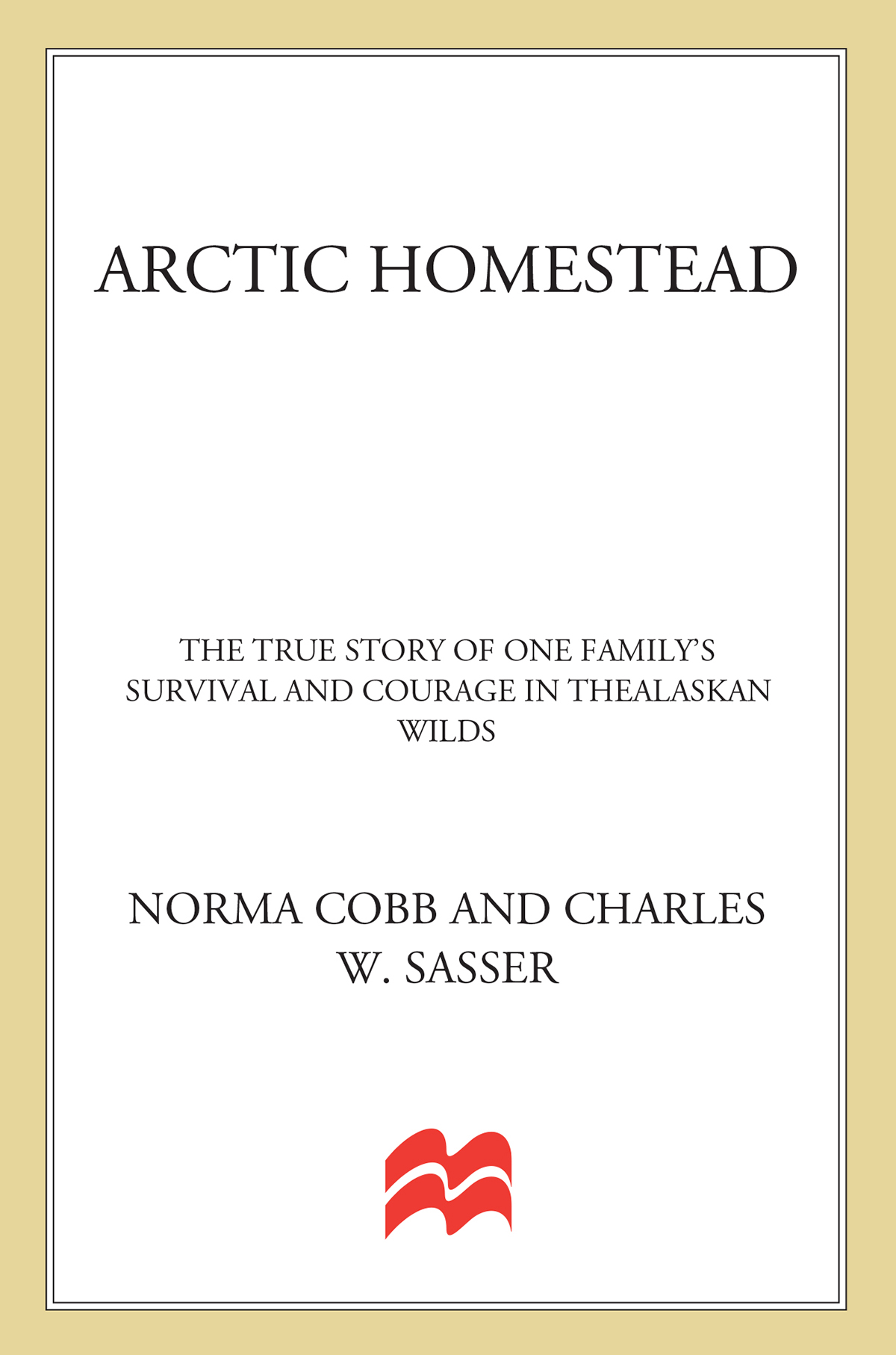



 New York
New York